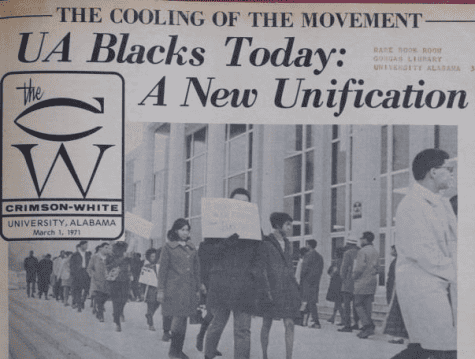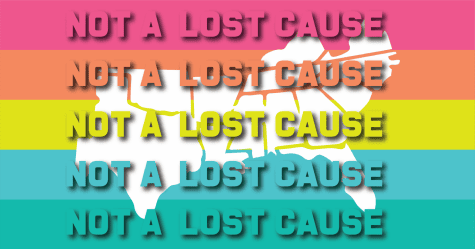Opinion | Blood Money: When will the film industry stop taking advantage of Black pain?
Hollywood seems most interested in Black stories when they’re rooted in collective trauma.
There are several rules within the entertainment industry that are used to enhance the sale of a product. Some of these tropes might seem harmless, like the stories of love, loss, mystery and war that have headlined box offices for decades.
But some of them can be dangerous.
The media, specifically film directors, have a monopoly-like grip on the genre of trauma. Merriam Webster dictionary defines trauma as a “disordered psychic or behavioral state resulting from severe mental or emotional stress or physical injury,” a feeling rooted in the Black experience. African Americans have endured a massive amount of trauma over the course of American history, so it doesn’t come as a surprise that the media – an institution rife with racism – furthers the cycle by exploiting our suffering.
The painful plotlines and tearful tropes are especially prevalent in mainstream movies. Let’s dive in.
A great deal of famous films depicting Black individuals have been centered on traumatic experiences, such as “The Green Mile” based on the Stephen King novel of the same name. The movie focuses on the false execution of a Black man that forced the wardens and guards of the prison to question the morality of the system they took part in. As a result, it swayed the audience to see the trauma experienced by Black men and the criminal justice system. It’s a system the film industry has been able to analyze, but fails to actually rectify or reform.
A commitment to justice requires more than just merely presenting the issue – a quite profitable issue at that. Black trauma is not a trend or a fab, and it shouldn’t help line directors’ pockets. The stories embedded in trauma have taken young lives and have left communities mourning, all in the hopes of gaining an equal spot on society’s playing grounds.
Movies such as “Get Out,” directed by Jordan Peele, follow the same trend. The movie coined the phrase “the sunken place,” where the minds of Black individuals are manipulated in hopes of obtaining a certain social status within white society.
Spike Lee has never been one to shy away from topics involving Black trauma either. His most recent work, “Da 5 Bloods,” discloses the horrors of war, the unintended results of it and the dangers of trying to retrieve things that may need to stay buried. The overall objective of the film was to convey the struggles of Black Americans, especially against institutions that have profited and progressed off Black trauma while keeping us inferior. And esteemed producer Tyler Perry depicts Black trauma so much so that he has received large amounts of backlash for it, whether directly or through parody (Have you seen that Boondocks episode? You should).
“The Color Purple,” “Waiting to Exhale,” “When They See Us” and “Fruitvale Station,” while critically acclaimed, aren’t much different from the other films in this list: Even while striving for racial justice, they rely on the same tired tropes. One would assume that the sheer number of movies surrounding Black trauma experienced daily would stimulate major change, but change won’t come through exploitation.
We’re not telling you to stop engaging with these movies or messages. No, the depiction of Black trauma is especially noteworthy and makes for extremely important dialogue, especially when based on real experiences. But the buck can’t stop there. Where is the attention to Black trauma off camera? A majority of these plot lines originate from the lives senselessly lost to a corrupt system. So as we watch for entertainment, we must remember the work that still needs to be done.
The storylines are tiring. So is the constant battle we face.
WATCH THIS, NOT THAT
From biopics to Black joy, here are five films that seek to empower.
Malcolm X
America aimed to convey Malcolm X as a man whose life only consumed violence, but this film illustrates his true story – one filled with well-thought perspectives, a religious journey and a focus on family.
Straight Outta Compton
A biopic centered on the prominent West Coast rap group N.W.A., “Straight Outta Compton” follows the rise and fall of the group during the ‘80s-’90s as they combat systematic racism and police brutality. Members of the group, such as Ice Cube, helped in producing the film to ensure it captured the true Black experience.
Black Is King
Beyonce Knowles wrote, directed and produced this musical film to tell the story of the famous film “The Lion King.” She strives to retell the story in a way that honors its roots. Through the story of a young African prince fighting to reclaim his throne, the film depicts the true power of the Black identity and all of its capabilities.
13th
Award-winning filmmaker Ava DuVernay produced this film (available on Netflix) to expose the trail of trauma within American history, as it relates to the Black community. Unlike many films about Black trauma, she shifts the conversation to a systemic issue: mass incarceration. She explains how prisons support modern day slavery as they disproportionately incarcerate Black bodies.
The Black Power Mixtape
This 2011 documentary sets the record straight about the history of the Black Panther Party, Stokely Carmichael and Angela Davis. It fuses together footage from the antiwar and Black power movements during the 1960s and ‘70s to relay the true stories of this crucial era in Black history.












